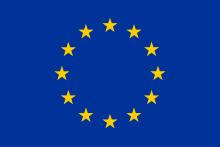How to Take Part in The Conference on the Future of Europe
Coinciding neatly with this year’s Europe Day, the launch of the Conference on the Future of Europe on 9 May offers all Europeans the promise of brighter days ahead.
So what exactly is the Conference on the Future of Europe?
First things first – it’s not a conference in the traditional sense of the word. By that I mean it’s not a one-off event in a crowded board room populated by jet-lagged attendees and flasks of burnt coffee.
The Conference is actually a year-long EU-wide project to seek citizens’ views about Europe’s future challenges and priorities. Led by a Joint Presidency of representatives from the European Parliament, the Council of the European Union and the European Commission, the Conference will take place virtually on its multilingual digital platform (futureu.europa.eu) and through European Citizens’ Panels and Plenaries.
Getting involved in the Conference is refreshingly straightforward – all you need to do is go to futureu.europa.eu and create an account.
You can then select from a list of nine key topics and share and discuss your ideas (amicably, of course) with fellow Europeans.
Civil society organisations and members of the public can also join or organise online or in-person events related to each topic. It goes without saying that the topics are all hot-button issues like:
-
Climate change and the environment
-
EU in the world
-
Values and rights, rule of law and security
-
Health
-
Digital transformation
-
Migration
-
A stronger economy, social justice and jobs
-
Education, culture, youth and sport
-
European democracy.
At this point you may be thinking, “Sounds great, but what happens to my ideas and comments? Do they just disappear into the internet ether?” While you’d be forgiven for any scepticism, you can rest assured that the Conference’s Executive Board is monitoring and analysing the ideas you share on the platform. They then put these ideas forward to feed into the discussions in the European Citizens’ Panels and the Plenaries. At the end of all the Conference events in Spring 2022, the Board will present its final recommendations for EU action in a report to the Joint Presidency. It is then up to the Presidency to follow up on these recommendations and usher in a more inclusive and participatory European Union.
Now that we’ve covered the “what” and the “how” of the Conference, let’s talk about the “why.” Specifically, why citizens and civil society organisations alike should get involved in the Conference and European initiatives in general.
What do we have to gain from our participation?
As we move into a post-Brexit and post-COVID world, we’re also moving into a new era for the European Union. This is a time of both rapid change and opportunity.
The EU recognises that Europeans need a stronger role in decision-making processes and as a result are pushing for more citizen and civil society involvement in EU projects and programmes. Apart from the Conference, you can also see this objective reflected in the priorities of the new Multiannual Financial Framework for 2021-2027. The Multiannual Financial Framework (or “MFF” in Europhile parlance) is the EU’s long term seven-year budget. It’s where the European Commission determines what their goals are over this seven-year period and how they are going to allocate funding to achieve those goals.
Alongside the twin Green and Digital transitions, this new MFF emphasizes the importance of active EU citizenship and participation. Active citizenship is included as a top priority across many of the programmes that are funded by the MFF including the Erasmus+ and the Citizenship, Equality, Rights and Values (CERV) programmes. Civil society organisations can apply for funding through these programmes to deliver projects that contribute to advancing the EU’s policy goals.
The Wheel’s Access Europe programme was created to build civil society organisations’ capacity to apply for and win funding from these programmes. We want to see an Irish civil society that is highly engaged in EU policy development and playing a part in influencing the decisions that affect them. Through participation in EU funding programmes and initiatives like the Conference on the Future of Europe, civil society organisations can make their voices and the voices of their beneficiaries heard at EU level and have a chance to make real change. If it proves to be successful, the Conference’s online platform might become a permanent public consultation tool – there’s no time like the present to get familiar with it and do our part to make sure the future EU is an inclusive one.
So what can you do now? Here’s how to get involved in the Conference on the Future of Europe and other EU initiatives:
-
Check out the Conference’s online platform and start sharing your ideas
And don’t forget that you can sign up to Access Europe for free and follow us on Twitter for updates on EU news and funding opportunities and support on developing EU project ideas, partnerships and applications.


